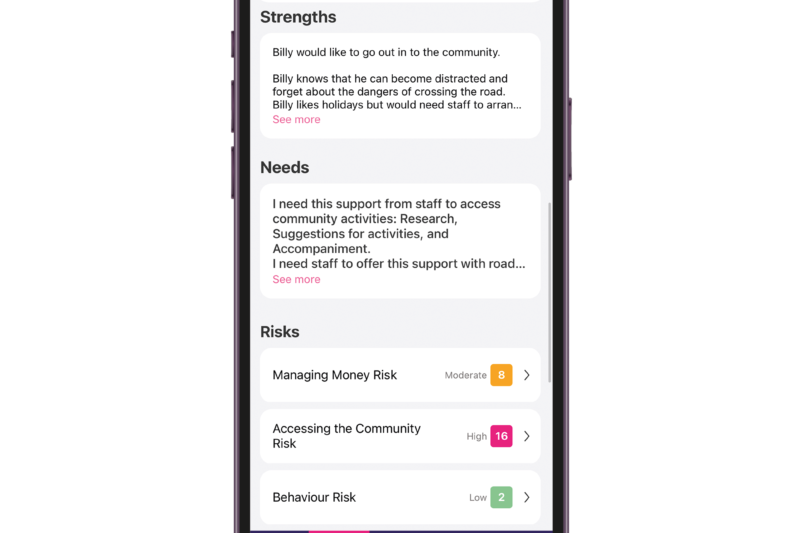Effective medication management is a vital aspect of providing high-quality care in a care home setting. In order to ensure that residents receive the right medication, at the right time, in the right dose, care homes are increasingly turning to Electronic Medication Administration Records (eMAR) and robust medication management processes. This article explores the value of eMAR and robust medication management in a care home and provides some do’s and dont’s for implementing these practices.
The Value of eMAR and Robust Medication Management
There are several benefits of using eMAR as part of robust medication management in a care home, including:
- Improved medication safety: eMAR systems can help to reduce the risk of medication errors by providing real-time information about medication administration, dosage, and timing. Robust medication management practices, such as regular medication reviews and staff training, can also help to reduce errors.
- Enhanced efficiency: eMAR systems can automate medication administration and reduce the amount of time staff spend on paperwork. This can help to improve efficiency and free up staff time for other important tasks.
- Better communication: eMAR systems can improve communication between care home staff and healthcare professionals, as well as between staff members. This can help to ensure that everyone is aware of any changes to medication regimes or resident needs.
- Increased accountability: eMAR systems can provide a clear audit trail of medication administration, which can help to increase accountability and reduce the risk of medication-related incidents.
Do’s and Dont’s for Implementing eMAR and Robust Medication Management
When implementing eMAR and robust medication management practices in a care home, it is important to follow some key do’s and dont’s to ensure success. Here are some examples:
Do’s:
- Ensure staff are regularly trained: It is essential that all staff members who will be using the eMAR system are trained to use it effectively and safely. This includes training on medication administration, dosage calculations, and how to use the eMAR system. Staff should receive regular training on medication administration and dosage calculations to ensure they are confident and competent in their roles.
- Regular medication reviews: It is important to regularly review residents’ medication regimes to ensure that they are appropriate and effective. This should be done in consultation with healthcare professionals, such as GP’s and pharmacists.
- Standardise Medication Administration Procedures: Standardising medication administration procedures is a crucial step in ensuring the safe use of medications in care homes. This process involves creating policies and procedures for administering medications, including the use of eMAR systems, and ensuring that all staff members are trained in these procedures. Standardisation helps reduce errors caused by miscommunication, lack of knowledge, or confusion about medication administration processes.
- Conduct Regular Medication Reconciliation: Medication reconciliation is the process of comparing a resident's medication orders to the medications they are currently taking. Regular medication reconciliation helps identify discrepancies and potential medication errors. Medication reconciliation should be conducted when a resident is admitted to the care home, when there is a change in medication orders, and when a resident is discharged or transferred.
- Involve Residents and Families in Medication Management: Involving residents and their families in medication management can help improve medication safety and adherence. Care homes can educate residents and their families about the importance of taking medications as prescribed, potential side effects, and what to do if they miss a dose. Care homes can also encourage residents to ask questions about their medications and involve them in decisions about their care.
- Use eMAR Systems to Support Medication Management: eMAR systems can help support medication management by providing real-time information about medication administration and alerts for potential medication errors. Care homes should ensure that all staff members are trained in the use of eMAR systems and that the systems are regularly updated and maintained.
- Develop a Medication Error Reporting System: Developing a medication error reporting system helps identify and address potential medication errors. Care homes should encourage staff members to report medication errors or near misses and should use these reports to improve medication management processes and to evidence learning to the regulators.
Dont’s:
- Over-reliance on technology: While eMAR systems are a useful tool, it is important not to rely on them entirely. Staff should still be vigilant and check that the medication they are administering is correct and appropriate for the resident.
- Ignore resident preferences: Residents should be involved in their own care and should have a say in their medication regimes. Staff should take into account resident preferences and any concerns they may have.
- Ignore medication-related incidents: If a medication-related incident does occur, it is important to investigate it thoroughly and take appropriate action to prevent it from happening again in the future.
- Rush medication administration: It is important to take the time to ensure that medication is administered correctly and safely. Rushing medication administration can lead to errors and increase the risk of medication-related incidents.
- Neglect Medication Storage and Disposal: Proper medication storage and disposal are essential for ensuring medication safety. Care homes should store medications in a secure location, follow proper storage procedures, and dispose of medications appropriately.
- Ignore the Importance of Medication Adherence: Medication adherence is essential for ensuring the safe and effective use of medications. Care homes should encourage residents to take medications as prescribed, and should monitor medication adherence regularly.
Conclusion
In conclusion, eMAR and robust medication management practices can provide many benefits in a care home setting, including improved medication safety, enhanced efficiency, better communication, and increased accountability. However, it is important to follow some key do’s and dont’s when implementing these practices to ensure success. By ensuring staff are trained, regularly reviewing medication regimes, and having clear policies and procedures in place, care homes can provide high-quality medication management.
MED e-care offer a modular suite of cutting-edge eMAR and care planning solutions to support you to deliver, record and analyse excellent care at every stage of the resident’s journey whilst meeting CQC/regulatory requirements and driving quality improvements. Our care home partners ultimately benefit as MED e-care eMAR integrates with pharmacy providers and other care technology providers to ensure joined up care, single entry of data and first class medication management.
For more information, please email info@mede-care.com, call 0161 232 4575 or see www.mede-care.co.uk
or
If you’re attending the Care and Occupational Therapy Show, 12th July in Exeter, please come and see the MED e-care team on stand 260 or see Chris Pearson, Managing Director UK and Canada, MED e-care Healthcare Solutions Ltd during the Technology Panel Discussion.




